Arts & Culture
-

Live fast, die young, inspire Shakespeare
Stephen Greenblatt finds a tragic strain in the life and work of Christopher Marlowe
-

Steve McQueen could lecture you, but he’s got other plans
‘I think the audience needs more, and I feel I need to give more,’ says award-winning filmmaker — presenter of this year’s Norton talks
-

Marking 100 years of Norton Lectures
Panelists reflect on ‘incredible value’ of annual series as ‘megaphone’ for artists and scholars
-
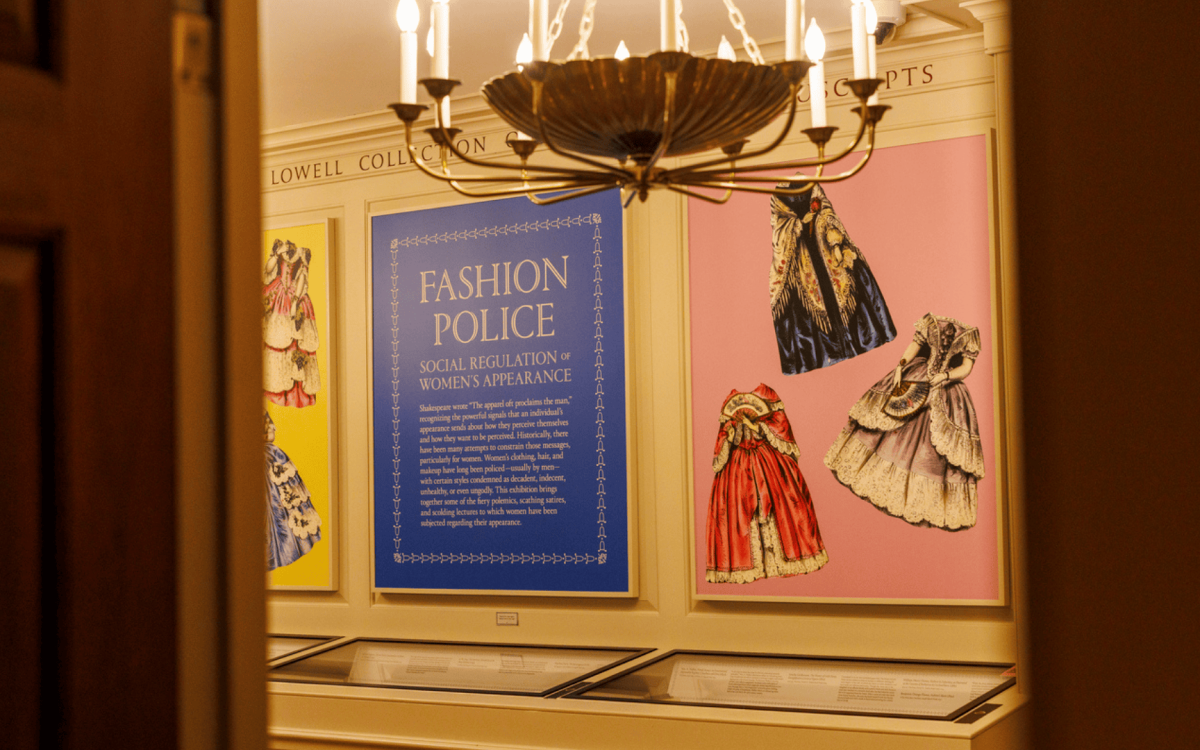
How fashion police have been walking beat for centuries
Houghton Library exhibit highlights the policing of women’s fashion since the 17th century.
-

Seeing what you see
New faculty Cécile Fromont is a visual problem solver
-
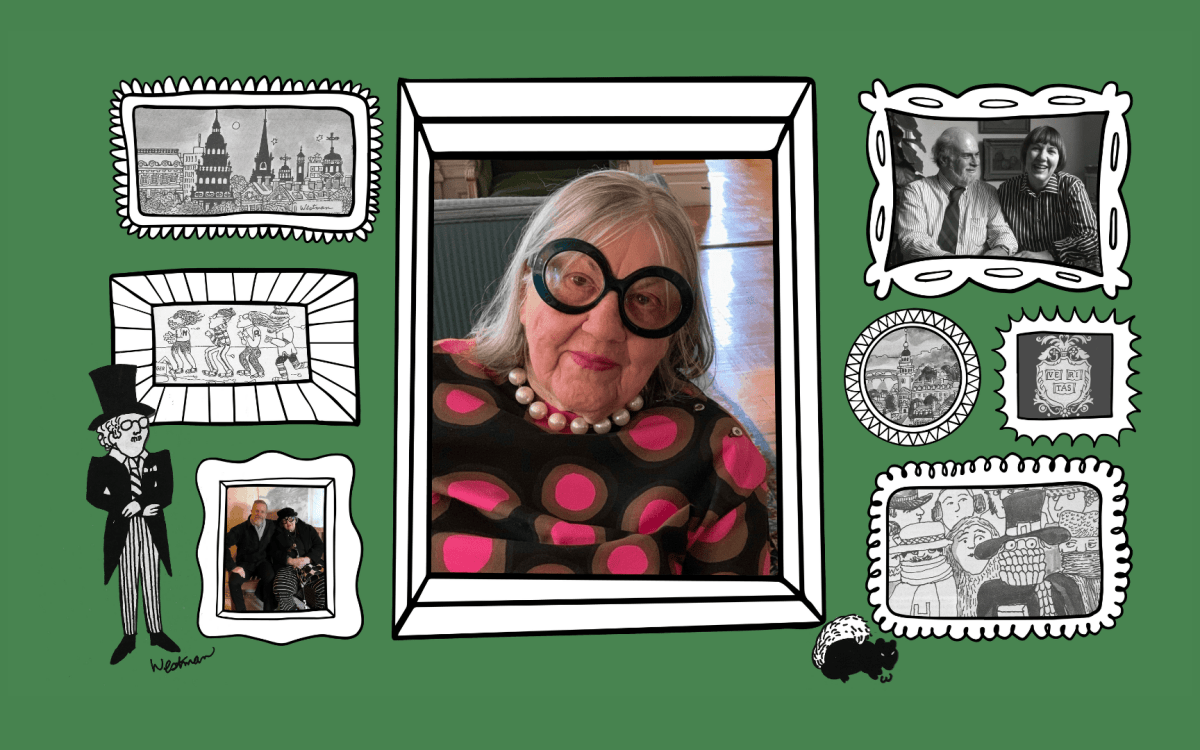
Her Cambridge iconography made her a local icon
Before New Yorker covers, Barbara Westman created colorful visions of campus as Gazette’s first staff artist
-
From ashram to Oxford
Nishin Nathwani ’15 spent a gap year backpacking in India; an advocate for outsiders, eventually he decided to give college a try.
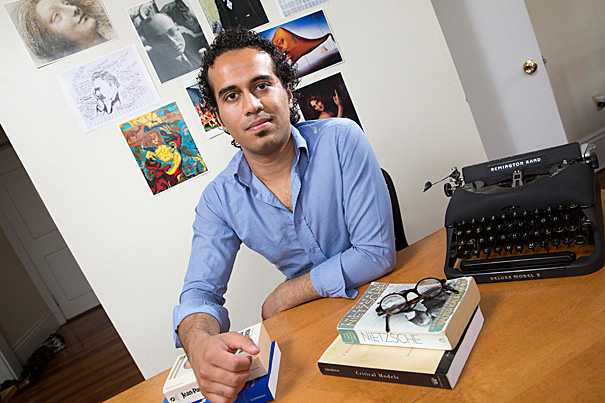
-
Where next?
Feature on jazz pianist Vijay Iyer as part of the Practice series.
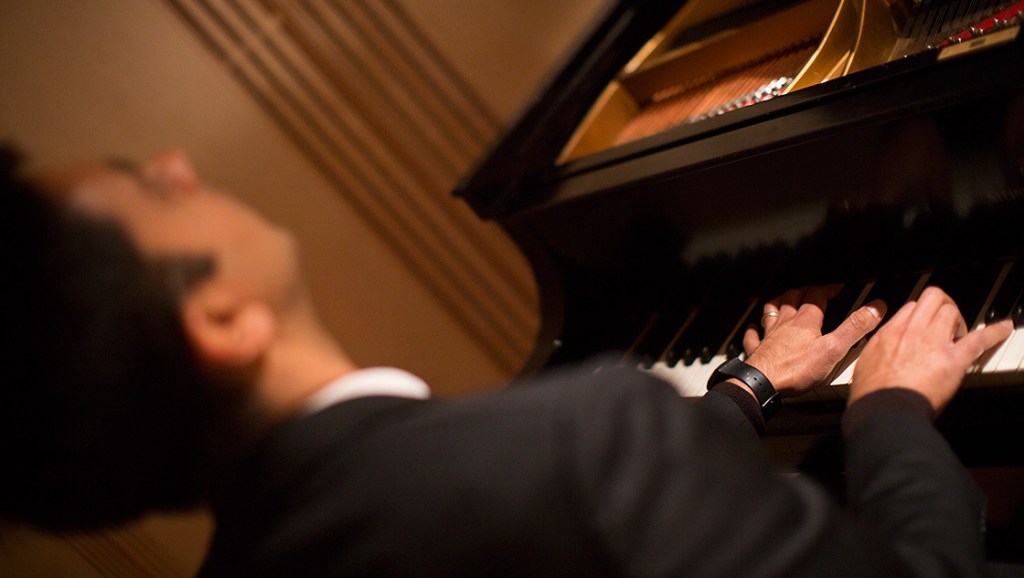
-
Down the rabbit hole at Houghton
“Such A Curious Dream! Alice’s Adventures in Wonderland” is on view from May 20 through Sept. 5 at Houghton Library.

-
A movie as a mirror
Three young Harvard alumni explain the genesis and the process of their making the hit film “Whiplash.”

-
Robert Darnton closes the book
A historian, digital library pioneer, and champion of books, Robert Darnton will depart Harvard early this summer, giving up his post as University Librarian to resume a life of full-time scholarship.

-
Saving the elephants
Author chronicles how a system in which Myanmar’s elephants were made half-captive likely has ensured their survival.

-
The roots of artistry
A clever exhibit at the Radcliffe Institute for Advanced Study, designed by Graduate School of Design Professor Rosetta Elkin, is bringing organic beauty out of the shadows. Her installation highlights the root system of a white poplar.

-
Walt Whitman’s war
A Harvard panel assesses Walt Whitman’s vivid and pictorial ‘Drum-Taps,’ a collection of Civil War poems out in print for the first time in 150 years. Professor Elisa New will explore “Drum-Taps” (along with Melville’s war poems) in a new HarvardX online American poetry course, which launches May 8.
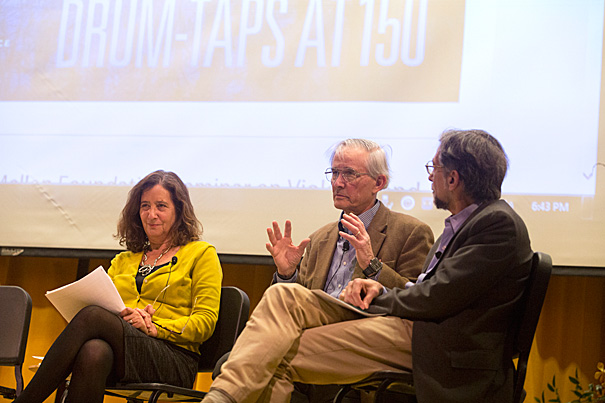
-
Making medieval German sing
Professor Racha Kirakosian is using performance to help her students grasp gender issues in medieval German literature.
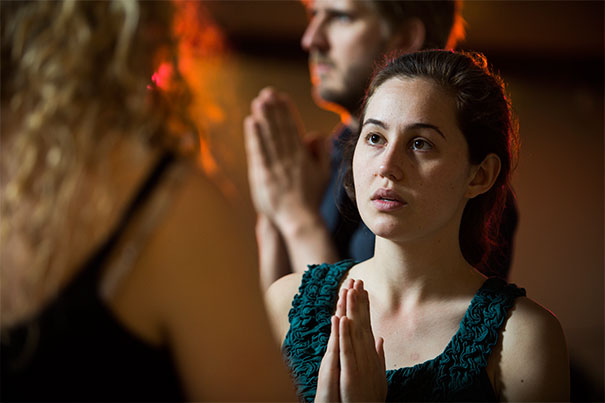
-
‘Losing Sight, But Gaining a Vision’
Gloria Hong ’15 won the Grand Jury Prize at the Girls Impact the World Film Festival for her short documentary, “Losing Sight, But Gaining a Vision” The film was made while Hong was enrolled in “African and African American Studies 109,” taught by Joanna Lipper.
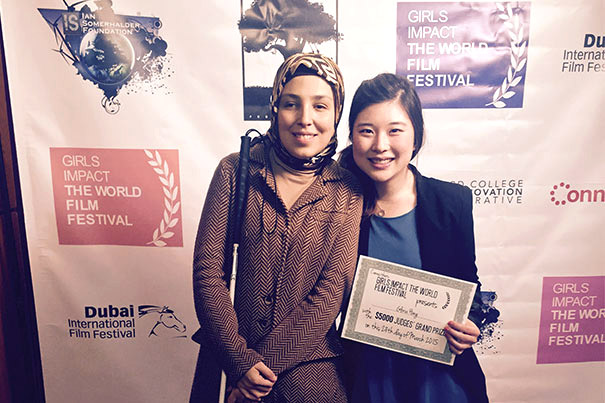
-
Picturing Harvard’s past
An exhibit at Pusey Library demonstrates how the first Harvard class photograph albums evolved. In the antebellum 19th century, photography was young, image technologies were changing fast (often with Boston practitioners in the lead), and Harvard students began adding the visual to the repositories of memory that for centuries had been dominated by text.
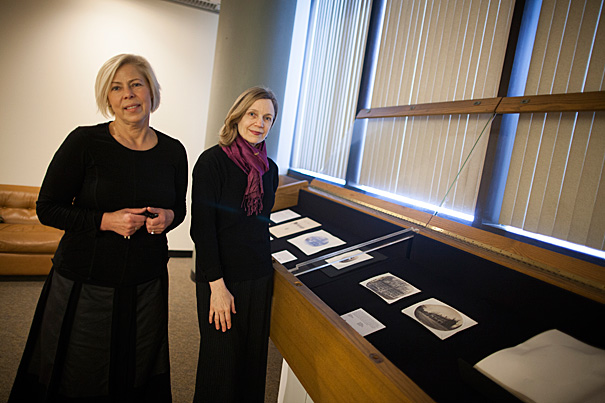
-
One-of-a-kind performer
Damian Woetzel was honored with the Harvard Arts Medal in a ceremony Thursday at Farkas Hall.
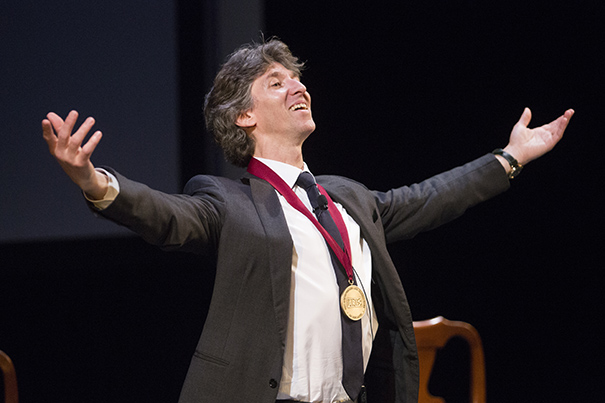
-
A vivid life
The life and art of Mark Rothko are examined in the new play “Red,” to be performed at Harvard Art Museums.

-
How to recast antiquity
With help from a Harvard grant and a class on the ancient Near East, Harvard students are re-creating casts of Mesopotamian masterpieces.

-
At the heart of ‘Mad Men’
Matthew Weiner, creator of “Mad Men,” talked about his development as a writer and the show’s beginnings in a conversation with Harvard’s Bret Anthony Johnston on Monday at Sever Hall.
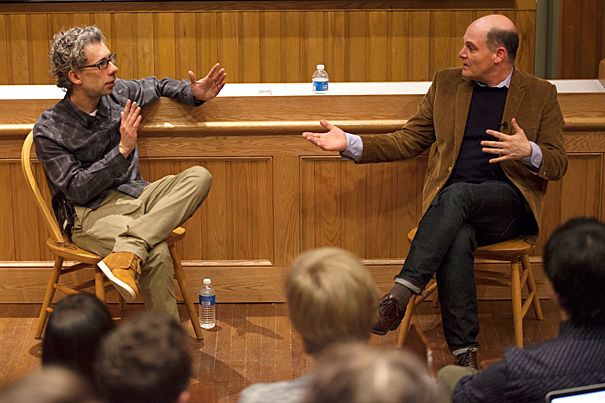
-
The mystery of Mahler
American audiences quickly embraced the Austrian composer and conductor Gustav Mahler when he moved to the United States, and to a surprising degree, lecturer Federico Cortese told an Ed Portal audience.

-
A house divided by grief
To mark the 150th anniversary of President Abraham Lincoln’s assassination, Martha Hodes’ new book offers firsthand accounts from the days following the murder.
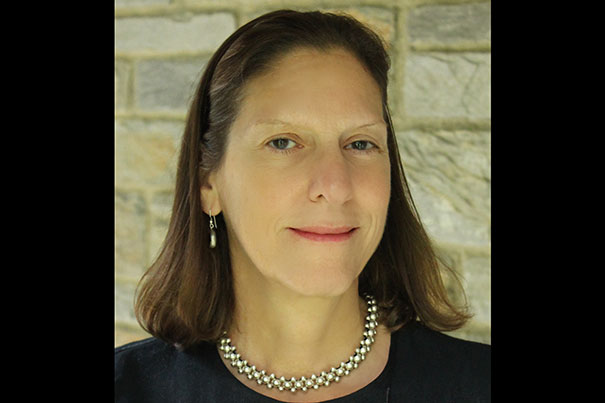
-
The things Harvard has
Scholars from across Harvard will convene at the Radcliffe Institute for Advanced Study on Friday for a symposium called “University as Collector” that will explore the importance of universities as collecting institutions.

-
In the mind’s ear
On a commission from the Harvard Art Museums, Mexican artist Carlos Amorales created “Triangle Constellation” to hang above the Calderwood Courtyard.

-
Unsettled by the bomb
A historian’s new book outlines the little-known role of black Americans in international campaigns to ban nuclear weapons.
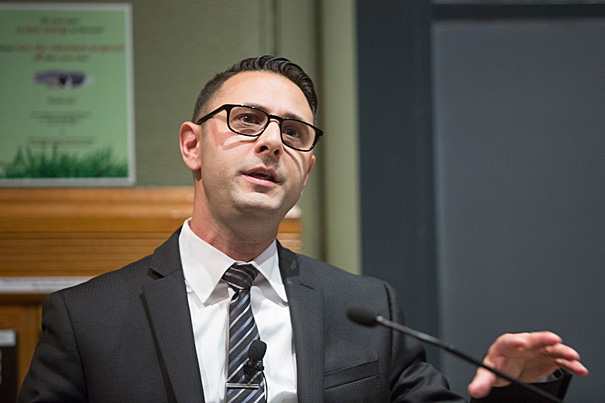
-
Path to understanding
During a panel discussion at Radcliffe, musicians in the diverse Silk Road Ensemble explained how they combine instruments, mesh traditions to make new music.

-
Voices, united
“Harvard Voices,” sponsored by the Harvard University Committee on the Arts, united a cross-section of artistic influences and University arts resources.
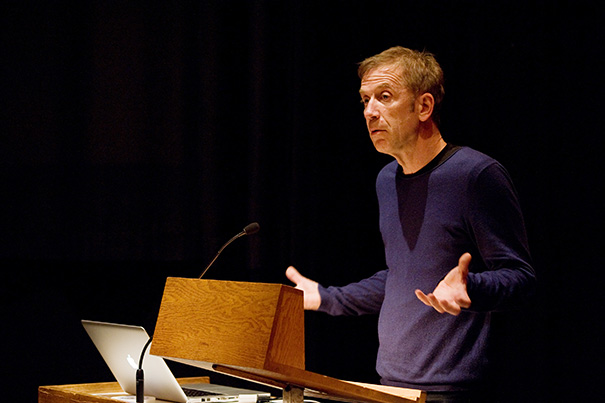
-
Celebrating Widener
Two lectures launched a yearlong celebration of Widener Library, which turns 100 this June.

-
The sacred middle
Harvey Cox, the Hollis Research Professor of Divinity Emeritus at the Divinity School, talks about his new book, “How to Read the Bible.”

-
What they overcame
Filmmaker Stanley Nelson Jr. took part in a question-and-answer session with Harvard President Drew Faust as part of the William Belden Noble Lectures.

-
The importance of being earnest
A Harvard senior creates a student-run show for his senior project. The work grew out of his special concentration in theater arts and performance. “OSCAR at The Crown and the love that dare not speak its name” runs April 15 and 16 at 8 p.m. and April 17 at 10:30 p.m.

-
Thinking backward
Professor Carlo Ginzburg of UCLA will deliver Harvard’s Tanner Lectures starting April 15.

-
Tangled roots
The story of “Drapetomania: Grupo Antillano and the Art of Afro-Cuba” is one of discovery and rediscovery. For the 30 artists represented, it illustrates the uncovering of an artistic heritage, and a lineage that was long denied. As part of “Drapetomania,” the Cooper Gallery is also presenting a Cuban film series, with screenings on Thursdays at noon.

-
Poetic wandering
This walking tour pairs classic Harvard landmarks with a sampling of the poets connected to the University — all in honor of National Poetry Month.

-
‘The Choice’ premiere
Written approximately 20 years after Elie Wiesel was freed from imprisonment in the Auschwitz, Buna, and Buchenwald concentration camps, “The Choice” is having a staged reading at Sanders Theatre on Sunday. It marks a premiere for the recently rediscovered work.



